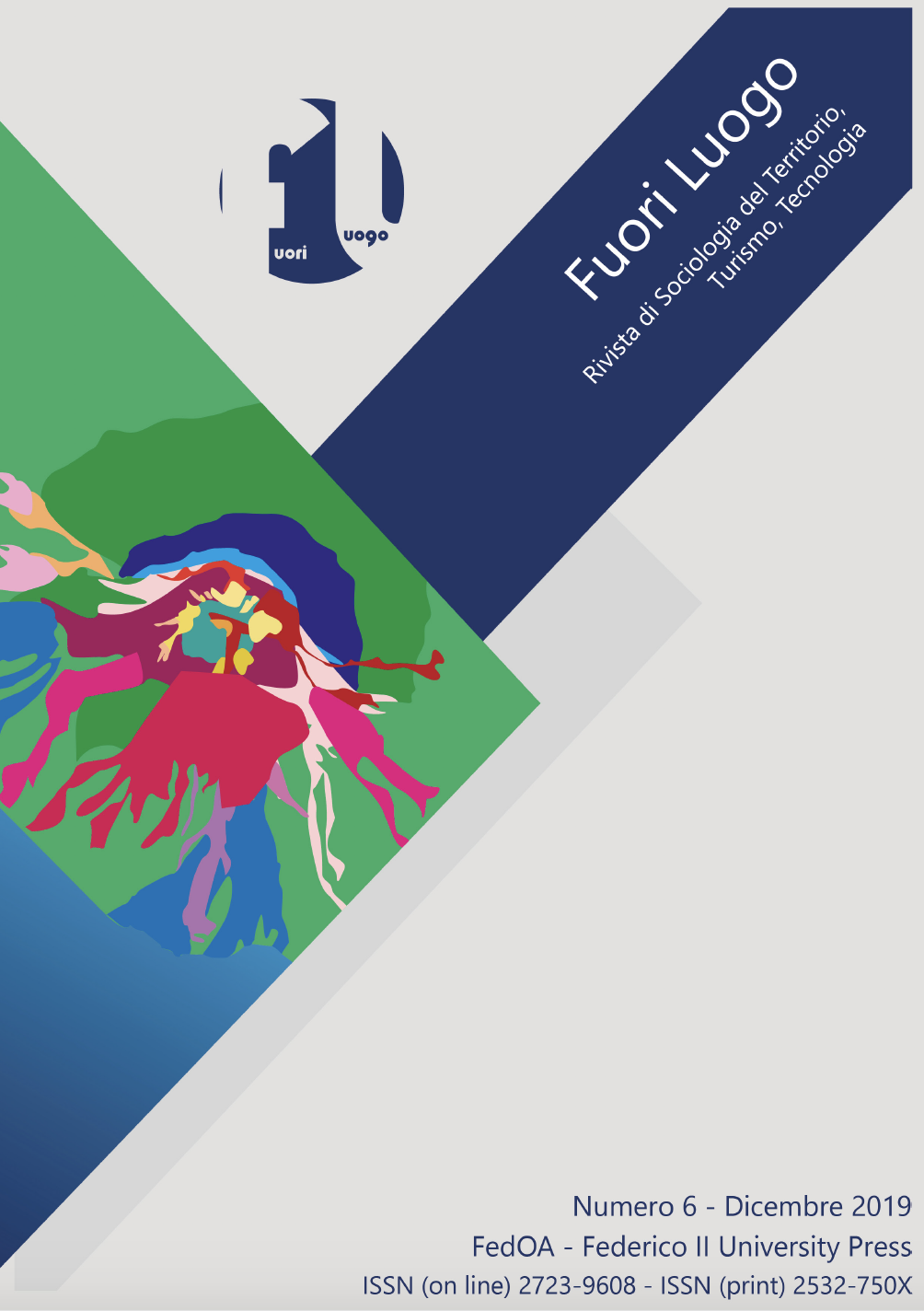Thanatourism: the dark frontier of travel. The case of the "Fontanelle Cemetery"
Abstract
The central role that the tourist experience has assumed in contemporary society is a conquest of the modernity, and has been made possible by the multiplication of means of transport, communication tools and the set of services available for travelers (Rojek, Urry, 1997; Urry, 2002, 2007; Turkle, 2015).
In fact, during the time, the offer has been more articulated (UNWTO, 2018), allowing each traveler to be able to build its own tourist path independently (Singh, 2004; Marra, Ruspini, 2010, 2011; Gerosa, Magro, 2011; Monaco, 2018).
The desire to get distracted and escape from the daily routine has gradually been accompanied by different forms of tourism that appear to be increasingly oriented towards the search for exoticism and experiences capable of significantly affect the individual identity (Rojek, 2005; Fadda, 2013; Gilli, 2015; Corbisiero, 2016; Monaco, 2019), that are supported by a big network of communication flows online within platforms for sharing reviews, opinions and tourist information among potential travelers, local populations and tourists that interact each other.
In this specific scenario, among the new different form of tourism, the so-called thanatourism (Seaton, 1996; 2009) finds its place: it is an unprecedented tourist frontier, which seems to attract a portion of tourists that in the future is destined to become wider. Thanatourism is realized in places traditionally associated with suffering and death, such as cemeteries, places that not only hold a central position from material-monumental point of view, but which are also repositories of an enormous intangible historical-cultural heritage.
After describing the circumstances that transformed travel and how the main technological and digital developments have changed the tourism, the paper focuses on the phenomenon of thanatourism, aiming at satisfying three macro-objectives at the same time, starting from a qualitative-quantitative field research focused on the case study of the “Cimitero delle Fontanelle” in Naples it describes the profile of the
tourists who practice thanatourism, in terms of expectations, needs and curiosity.
Secondly highlights the ambivalence of the places that are located halfway between touristic and sacred, stressing the main characteristic issues of this situation.
Downloads
Copyright (c) 2021 Francesco Calicchia, Salvatore Monaco

This work is licensed under a Creative Commons Attribution 4.0 International License.




